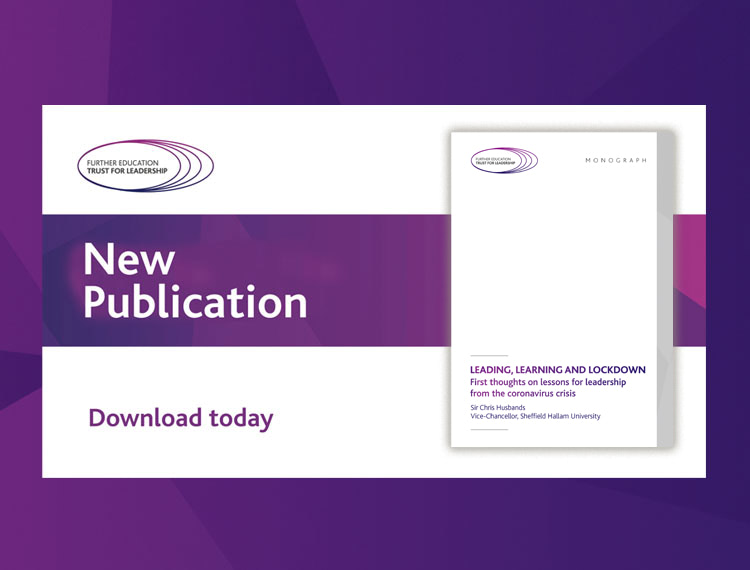Organisational Shame: An issue FE & Skills can no longer afford to ignore

A new paper from @FETforL “#FE and #Skills and Shame in Organisational Life” examines organisational shame and explores further education leaders’ own experiences of being shamed
The Further Education Trust for Leadership (FETL) has published the first of two papers on shame and shaming that will highlight the importance of this under-discussed issue and demonstrate its relevance to organisational life and to further education in particular.
FE and Skills and Shame in Organisational Life, written by John Bazalgette and Susan Harrison and funded by FETL, draws on relevant literature and interviews with FE leaders to provide a theoretical framework for discussing shame and understanding its role in our working lives and institutions.
It argues that the level and nature of scrutiny in the further education sector has sometimes gone beyond what is fair or justified, helping create a culture of fear and anxiety in which honest but struggling leaders are reluctant to admit vulnerability or to reach out for help – creating conditions in which shame can flourish.
Dame Ruth Silver, President of FETL, said:
‘This paper – and a further, complementary paper that will follow – aims to put organisational shame on the FE agenda. It does not mean to give concrete solutions to these problems. Its purpose instead is to stimulate more discussion and to give that discussion a framework, grounded both in academic research and in the concerns of sector leaders.
‘It is good to hear the voices of sector leaders raised in this context. This is not an easy topic and I would like to express my appreciation of those leaders who took part in the interviews and shared their own experience of shame and shaming.
‘Their contribution is important and necessary. Organisational shame and shaming produces leadership that introverted, authoritarian and focused on short-term goals in preference to the long-term needs of students and their communities. It is also, ultimately, an attack on learners and learning. We can do better.’












Responses